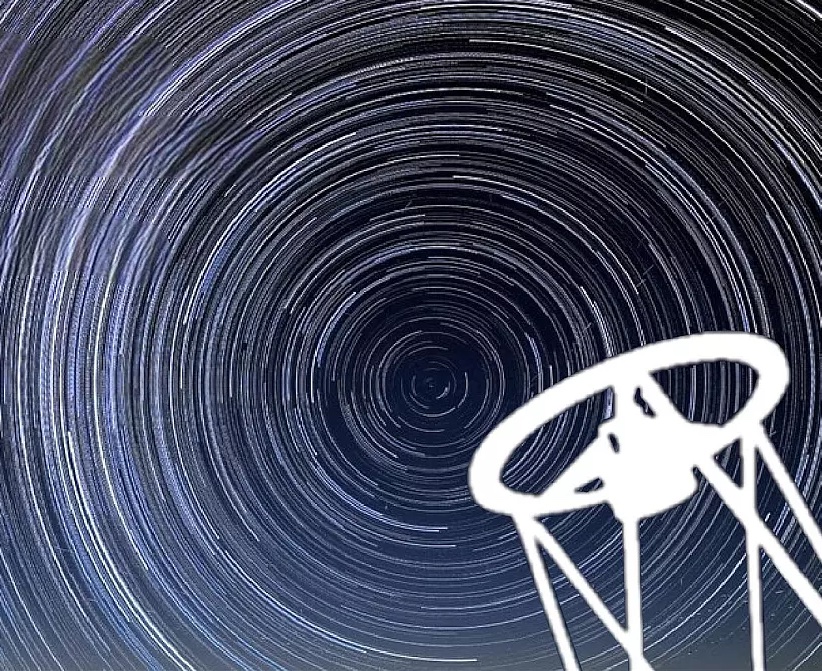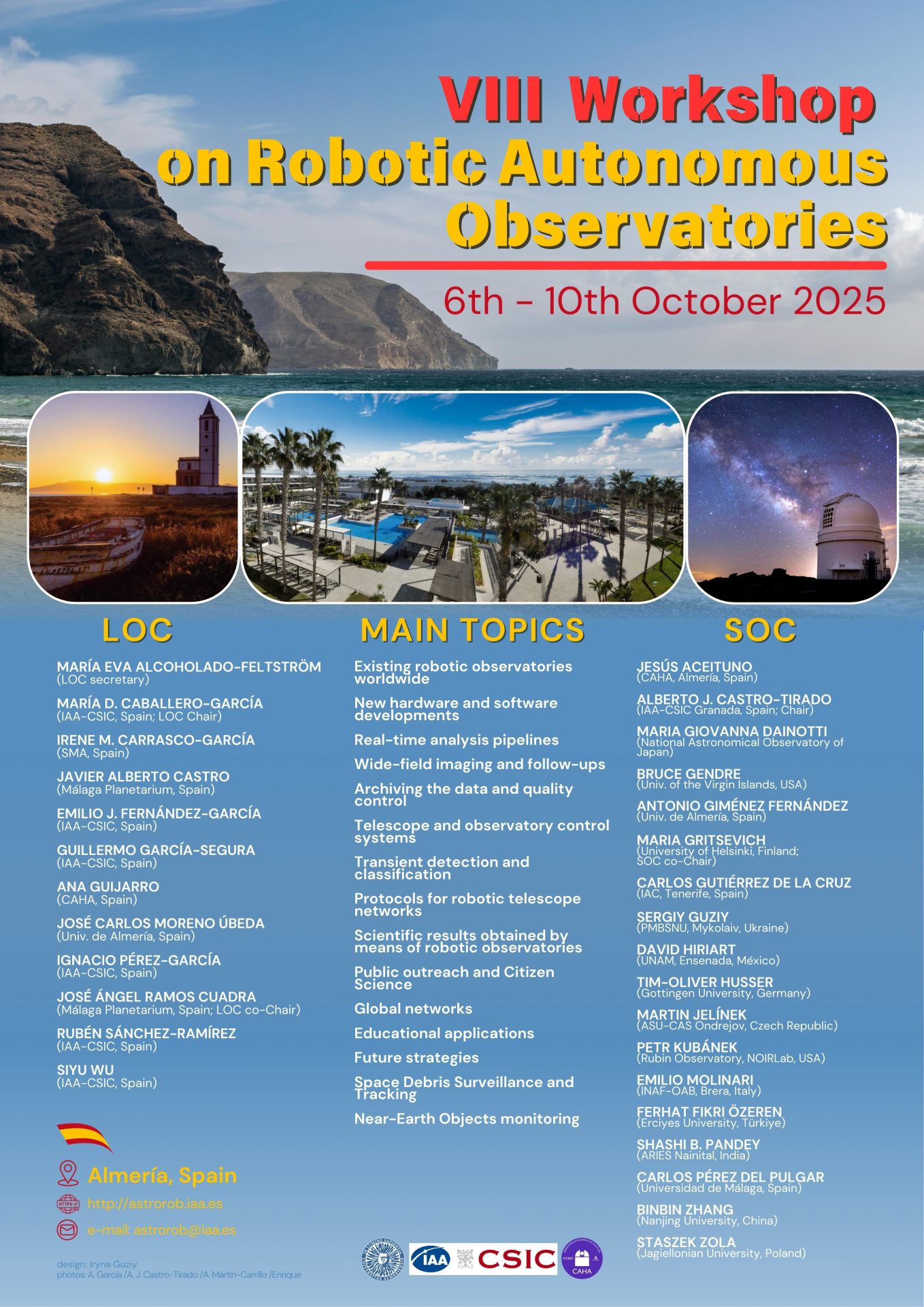
- Este evento ha pasado.
Eighth Workshop on Robotic Autonomous Observatories

Sixteen years after the inaugural workshop in Málaga, robotic and autonomous astronomical observatories have achieved remarkable advancements. The global number of automated facilities has grown substantially, along with their capabilities in robotization, autonomy, and networking. These developments, driven by the search for electromagnetic counterparts to gravitational waves (such as the groundbreaking detection in 2017), have profoundly influenced diverse areas of astrophysics and beyond, including:
- Fireball detection
- Minor planet studies
- Exoplanet searches
- Monitoring variable stars in the Galaxy
- Studying active galactic nuclei
- Supernova detection and monitoring
- Rapid follow-up of high-energy transients like gamma-ray bursts
- Electromagnetic counterparts to neutrino and gravitational waves
The workshop will also highlight the increasing importance of space debris surveillance and tracking, the observation of Near-Earth Objects, the role of robotic observatories in public outreach and education, and their contributions to open science.
The Scientific Organizing Committee aims to deliver a dynamic program addressing scientific, technical, educational, and outreach themes.
We encourage researchers, engineers, educators, and enthusiasts working in these fields to join us at AstroRob2025. The success of this workshop series has been largely due to the active participation, insightful presentations, and engaging discussions contributed by its attendees. Your involvement is key to making the forthcoming workshop as fruitful and inspiring as previous editions.

